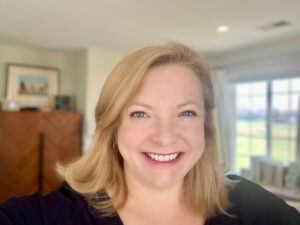When I was a child, I cherished the ritual of walking with my mother or my grandmother to our local libraries. The shelves were stacked with new worlds waiting to be discovered. How I loved that hungry caterpillar who could transform into a butterfly. The sense of urgency I felt for the characters of Charlotte’s Web speaks to the way that literature can engender empathy and help us in our daily lives.
I remember the first time I read A Wrinkle in Time—science, adventure, and fantasy, all in one story that offered insights about the choices and struggles we face as humans. How could Madeleine L’Engle or any writer combine so many elements into one book? I was in the fourth or fifth grade. I read the book and the others in the series several times over the next few years. What also stays with me is the sense of pride I felt in my first selection from the young adult section of the library.

Years later, when I was living outside Washington, D.C. in Virginia, I visited the Main Reading Room at the Library of Congress. To enter the space, one must surrender all but the essentials. I brought my notebook, a folder, a pen, a pencil, and my reading glasses.
The room is several stories tall, with elaborate marble columns and balustrades, a hand-painted dome, one set of statues representing great Western thinkers such as Michelangelo, Plato, Homer, and William Shakespeare and another set representing areas of human endeavor, such as art, history, and law. I took my seat among the rings of golden wooden desks visited by library patrons over hundreds of years.
None of the noise of tourist buses, helicopters, city buses, cars, or street chatter penetrated the room. At first, I found the quiet unnerving, but then I took a deep breath. My folder held the set of poems I’d brought with me to revise for graduate school. I took out the printed pages and fanned them across my workspace. Before I set to work, I decided to look up and take in the room’s surroundings. By chance, I’d selected a seat opposite the statue representing poetry. My intake of breath must have been audible, as the person seated at the chair nearest mine looked at me. Despite the apparent disapproval of my neighbor, the initial lack of ease I felt evaporated.
In that moment, I recognized the power of libraries—connecting readers, researchers, and writers across time. Poetry was there for all of us—William Shakespeare, student poets like me, and anyone who loves poetry (Did you know that April is National Poetry Month?).
Libraries make collections of books and archives available so that people in different time periods can discover something about our human experience that guides us forward. Today, I value libraries as much for the communities they bring together as for the opportunities for reading and research they afford.
What are some of your favorite library experiences? Let me know in the comments. National Library Week is April 4 – 10.